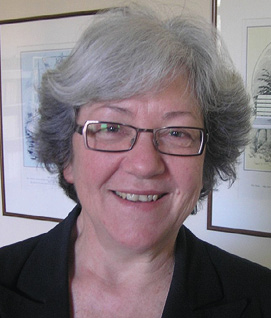
Carmen Lawrence trained in psychology at the University of Western Australia winning numerous prizes. She held lecturing and research positions in universities and was politically active in the university setting well before she entered politics in 1986. Carmen has served as a politician at both State and Federal levels, was the first woman in Australia to take the position of Premier of a State, and has been a member of various parliamentary committees. She has been a strong advocate for democratic reform and refugee issues. Carmen is currently a Professorial Fellow at the University of Western Australia.
It is sometimes said that leadership is one of the most observed and least understood phenomena on earth and, I would add, too often conceived as an individual rather than a socially constructed idea. During my time in politics, I became convinced that if our political institutions are to approach optimal condition, then good political leadership is essential. What constitutes such leadership is, of course, the subject of continuing debate and I would be the first to acknowledge that quality leadership is notoriously difficult to deliver.
My own thinking has always been conditioned by the expectation that leaders will contribute to the maintenance and improvement of the health of our democracy. A good leader is one who works with others – who embraces the ‘we’ that underpins the very idea of democracy – to strengthen democratic processes, to facilitate participation and to ensure adequate scrutiny of decision-making.
Unfortunately, the way we think and talk about politics often appears to assume that our political leaders are autocrats; that they can act without deliberating with their colleagues and deliver policies which have not been debated within the wider community. The increasingly presidential style of campaigning, for example, and the identification of governments with leaders rather than parties of groupings – the Turnbull or the Gillard government – amplifies these tendencies. Prime Ministers should be the ‘first among equals’, and ideally, decision-making is collective.
I often needed to remind myself and others that ours is a representative form of government, that political leaders make decisions on behalf of community and should seek to represent community interests, broadly defined, ensuring that all citizens are afforded equal respect and consideration. I was also deeply concerned about the erosion of our democracy, and the sidelining of many voices from civil society, by the undue influence of special interest groups, by those able to afford the paid lobbyists and substantial political donations.
Among the lessons I learned while occupying various ministerial positions and as Premier of Western Australia is that it is critical to have a thorough understanding and respect for the formal elements of the political system, especially the separation of powers – something the current US President clearly struggles with. Accepting the limits to power is also crucial, as is a capacity for creative policy development, an ability to weigh up evidence and judge the merit of various ideas. My training in psychology was particularly useful in this respect.
In order to harness the best ideas and energy of both colleagues and the wider community, a willingness to take the time to foster teamwork and co-operation is also vital. I found too that the best outcomes are achieved when there is a free flow of information and those with dissenting views are routinely consulted, rather than derided. None of this would have mattered unless I had made the effort to develop the skills to communicate effectively, particularly about core values and contemporary community concerns. Striking a balance between decisiveness and caution and, at the same time, being willing to admit error and accept criticism also proved necessary elements in such communication. On top of these near impossible goals, I knew that being accessible to people and clearly being part of the community would assist in generating community acceptance of political decisions, as does the ability to give voice to community narratives. The leadership roles I occupied sometimes seemed to require superhuman levels of energy and discipline, which I wasn’t always able to deliver.
What also became clear to me, as much from observing others as from my own experience is that leaders, including in politics, are often rewarded for the wrong things. The image-laden style of modern politics with its focus on instant media responses to decisions means leaders can start to believe their own propaganda, focusing on short-term responses which enhance opinion polls. There is a danger too that to gain popular support by assuaging majority fears and prejudices, leaders can misuse their power to demonise and harass minority groups such as Indigenous Australians and asylum seekers. Similarly, winning acrimonious debates in the Parliament and thriving in the daily ‘biff’ of politics, can substitute for good policy; being ‘tough’ can become more important than getting it right.
Perhaps most important of all the lessons I learned is that leaders operate more democratically when people have deeper information about politics and when the distribution of knowledge is more equitable. Political participation and knowledge affect each other reciprocally, increasing people’s attentiveness to political events, and making them better able to hold their leaders to account.